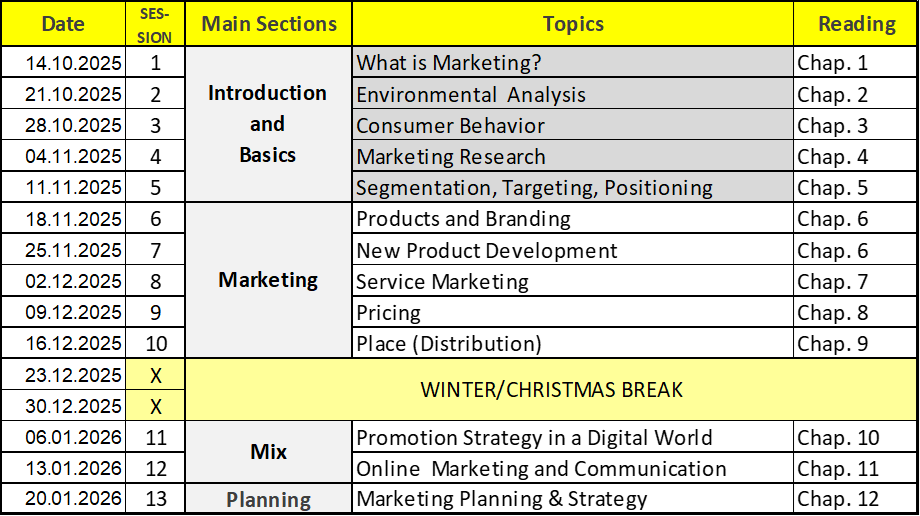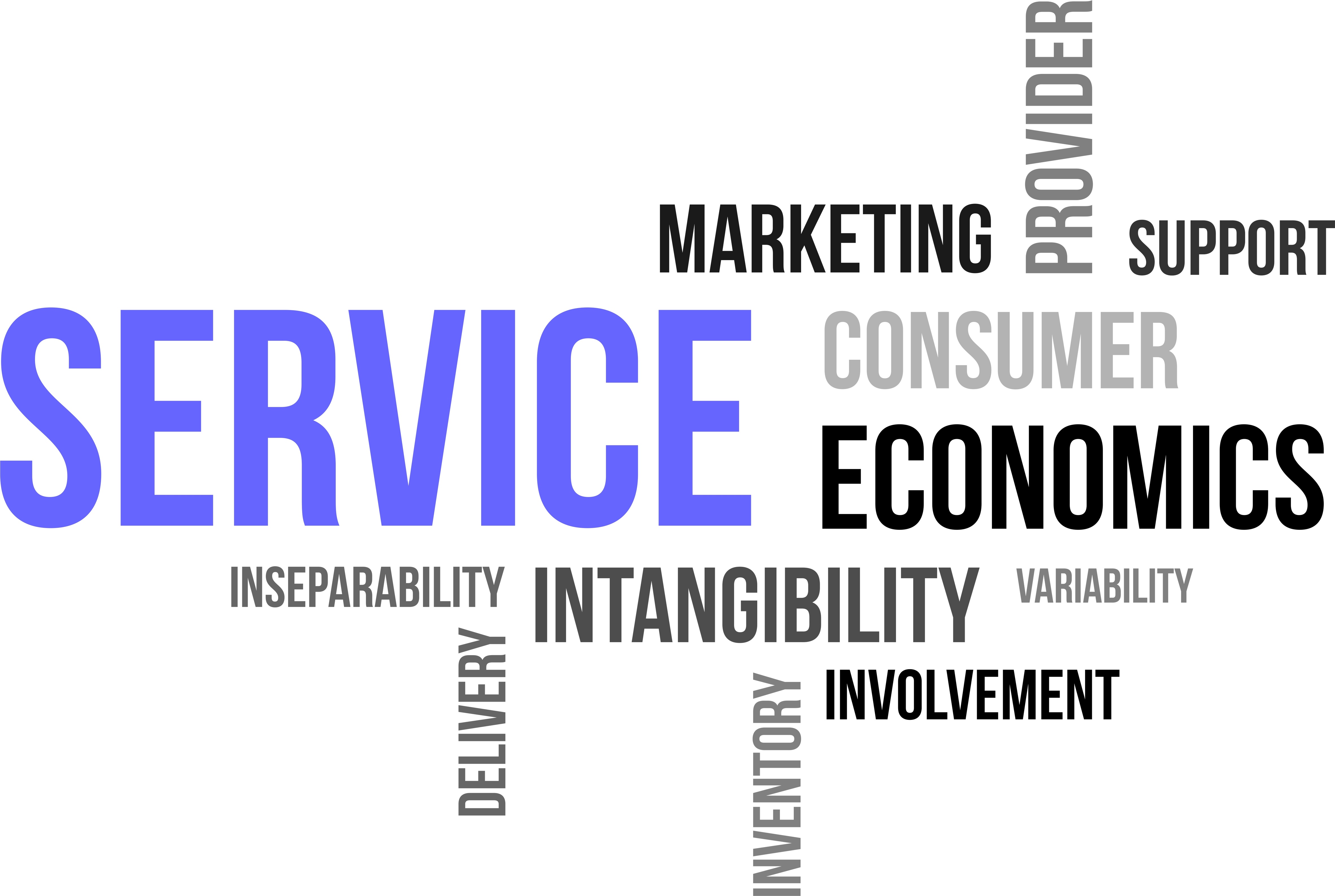Graf: Marketing IBA WS 25/26 Neue PO
Section outline
-
Dear Students, a Warm Welcome to your course "Introduction to Marketing".
The table above provides you with an overview on course topics and dates along the semester.

Readings refer to Fahy/Jobber listed and linked below. Readings are recommended to students who prefer reading instead of learning from their own lecture transcripts or the course videos in Moodle.
-
Activities: 9
-
Unit Objectives

- Understand the core concepts of marketing and its scope.
- Recognize how to create customer value and satisfaction
- Understand how marketing has evolved over time.
- Comprehend marketing from the customer’s perspective.
- Learn about customer relationship management and its significance.
Activities: 8 - Understand the core concepts of marketing and its scope.
-

Unit Objectives
- Understand the Marketing Planning Process
- Know the elements of the Marketing Audit
- Comprehend environmental analysis, in particular how it affects marketing strategy
- Appreciate structured and methodological approaches by utilizing Tools such as PEST and Five Forces for the environmental analysis
- Be able to conduct a SWOT analysis
Activities: 7 -

Unit Objectives
- Comprehend the Factors Affecting Consumer Behavior
- Know the Buyer Decision Process and the Roles in the Decision Making Process
- Be able to distinguish different types of consumer decisions
- Discuss the impact and challenges of Influencer Marketing
- Compare and Contrast Business Markets, Business Buyer Behavior, and the Business Buying Process
Activities: 12 -
 Unit Objectives
Unit Objectives- Understand the meaning of Customer Insights and the Value of Data
- Distinguish Marketing Research vs. Mktg. Information Systems and Marketing Databases vs. Customer Relationship Mgt. Systems
- Identify Sources of Data: Internal/External; Primary/Secondary
- Differentiate the Types of Marketing Research and Types of Data
- Comprehend the Marketing Research Process and Sampling Methods
- Disucss Primary Data Collection Methods
Activities: 9 -

Unit Objectives
- Understand the purpose of Market Segmentation
- Know how and why Segmentation is done
- Discuss the Criteria for Effective Segmentation
- Comprehend market Targeting and Differentiation
- Develop a Positioning Strategy and a Perceptual Map
- Explain Repositioning
Activities: 9 -

Unit Objectives
- Define a Product and describe the three levels of a product
- Explain Product Line and Mix Decisions
- Understand the difference between a Product and a Brand
- Comprehend Brand Characteristics and Benefits
- Know brands name strategies
- Apply the Boston Consulting Matrix
Activities: 4 - Define a Product and describe the three levels of a product
-
Unit Objectives

- Understand the necessity of developing new products and ways to do so
- Describe a typical Process for developing new products
- Distinguish Product Life-Cycle Strategies
- Comprehend Diffusion of Innovation Theory
Activities: 6 -

Unit Objectives
- Know the 4 unique characteristics of services: intangibility, inseparability, variability and perishability.
- Comprehend additional elements of the services marketing mix
- Know how to manage service productivity and service quality.
- Measure service perceptions against customer expectations.
Activities: 4 -
Unit Objectives

- Know the Key Aspects in Price Decisions
- Understand cost-based, competitor-oriented or market-led pricing
- Comprehend additional aspects influencing pricing
- Distinguish pricing new products - skimming or penetration
- Apply pricing strategies to objectives and price changes
- Recognize pricing approaches in the digital world
Activities: 4 -
 Unit Objectives
Unit Objectives- Understand the Nature and Importance of Distribution Channels
- Distinguish Vertical vs. Horizontal Marketing Systems
- Comprehend Channel Strategy Decisions
- Know how to perform Channel Management and the source of Channel Conflicts
- Discuss Retail Store Formats
Activities: 6 -
 Unit Objectives
Unit Objectives- Understand the concept of Integrated Marketing Communication (IMC)
- Know the major Promotional Tools and their Roles within the promotional mix
- Comprehend the process for Developing Marketing Communication (setting goals+ budget, developing the message, testing the outcome
Activities: 4 -
 Unit Objectives
Unit Objectives- Explain online communication objectives/digital marketing
- Know how to design an effective digital marketing campaign
- Discuss the different digital channels and media
- Explain how companies create an omni-channel marketing strategy
- Identify and discuss the public policy issues presented by digital marketing
- Know how to measure digital marketing efforts
Activities: 10 -
 Unit Objectives
Unit Objectives - Revisit the Marketing Planning Process
- Appreciate the rewards of strategic marketing planning
- Understand the Ansoff Matrix and Porter´s Competitive Strategies/Value Chain as tools to develop growth strategies
Activities: 2 - Revisit the Marketing Planning Process
